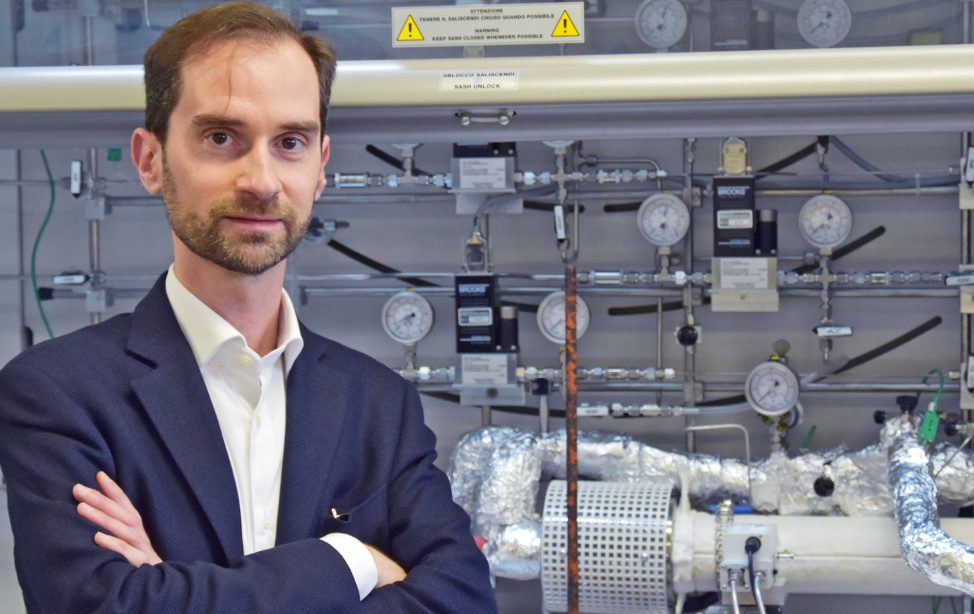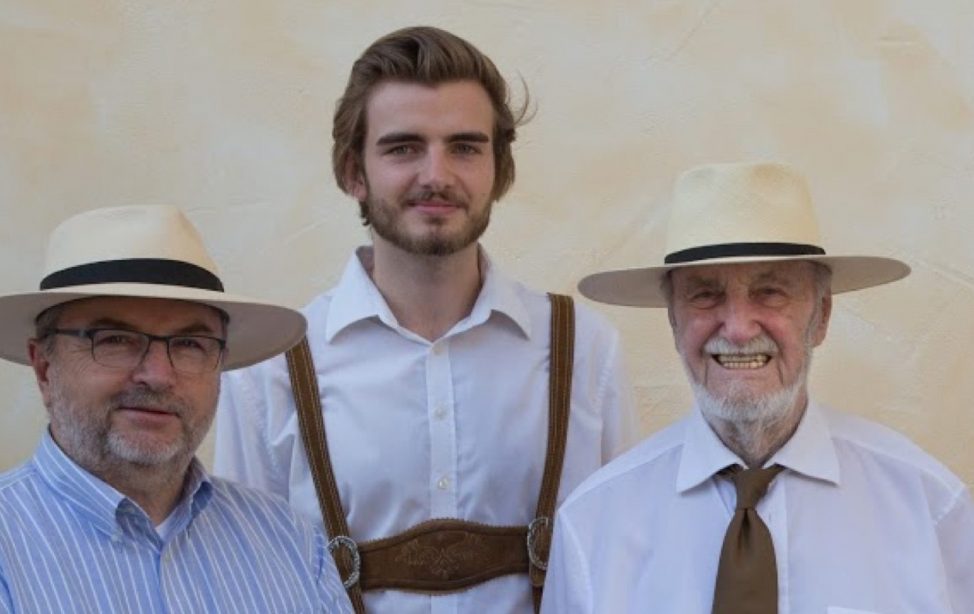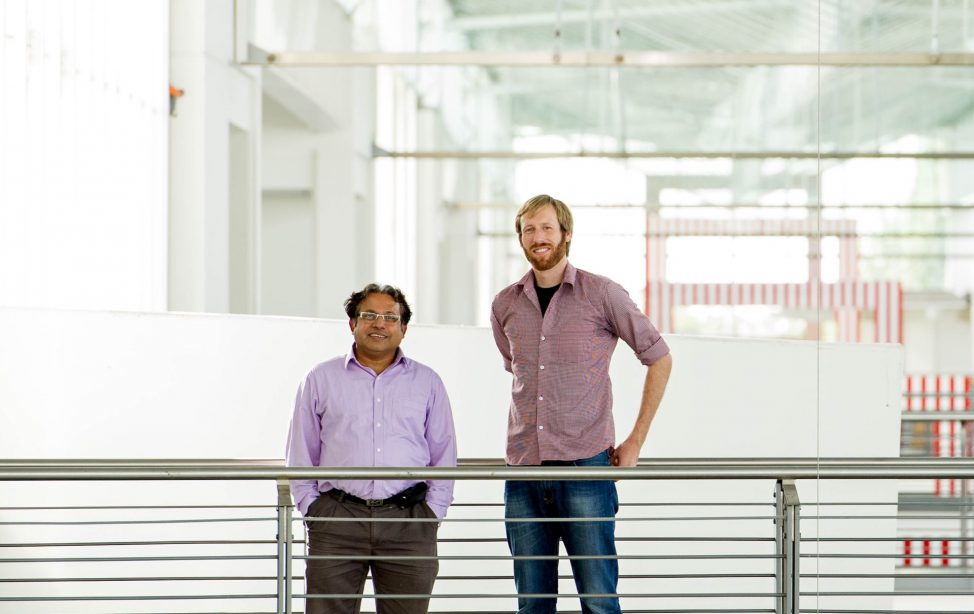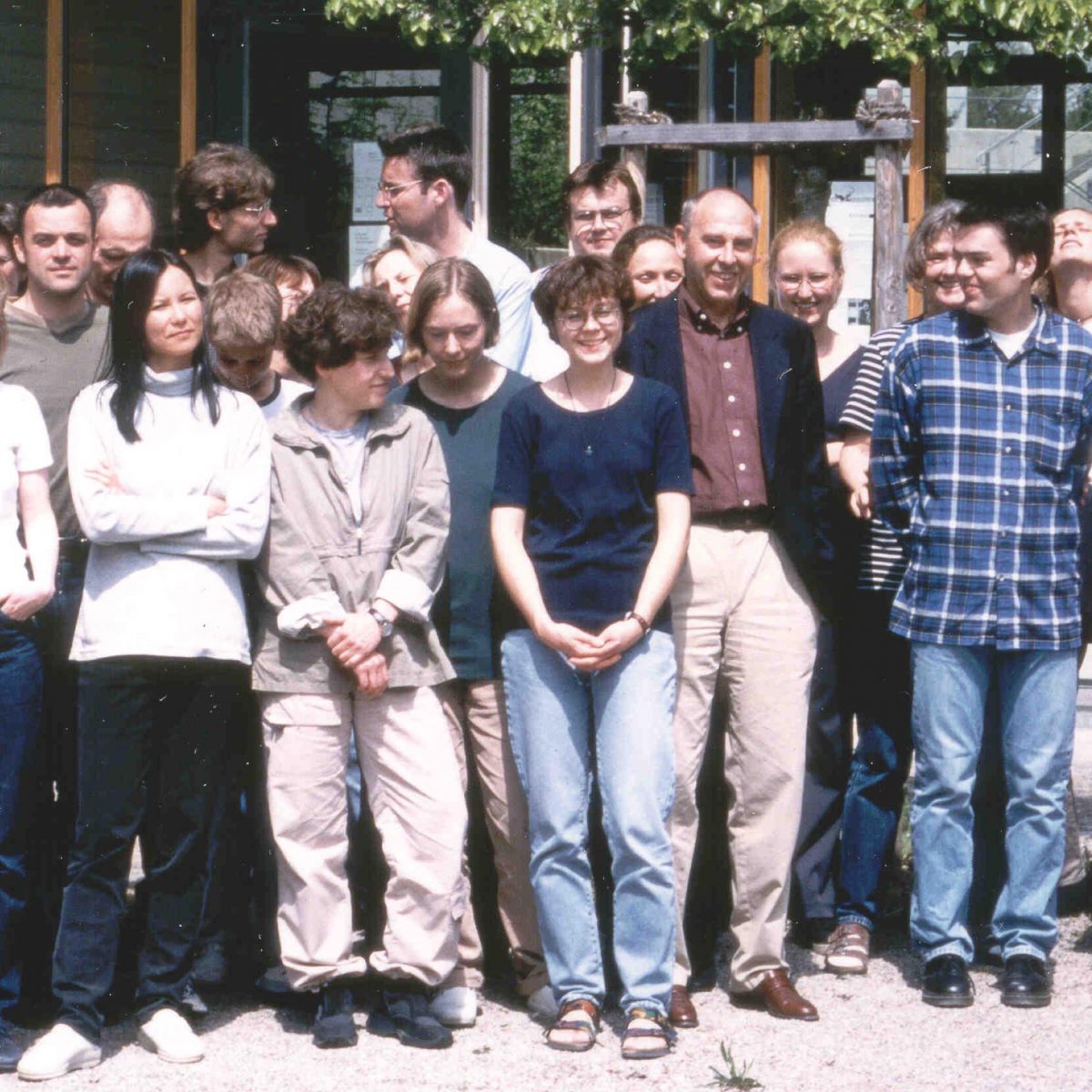
TUM Alumni and Emeritus of Excellence Prof. Dr. Karl-Heinz Schleifer (center with jacket) and his team shortly after they were moving to Wissenschaftszentrum Weihenstephan in 2000 (Image: Private).
From this point on Karl-Heinz Schleifer was infected. Although he still passed his state examination, he withdrew from the traineeship and began directly doing research. Only two and a half years later he was awarded a doctorate – “summa cum laude”. It marked the beginning of an outstanding scientific career that made Karl-Heinz Schleifer one of the most cited microbiologists in the world.
At the forefront of microbial research
From now on, Schleifer was driven by his enthusiasm. He immersed himself in the diverse world of microbes, he made discoveries of global importance and turned the TUM into one world-leader in microbiology. Microbes are micro-organisms – tiny creatures that are at home for example in water or on our bodies. The term includes bacteria, fungi and viruses. Karl-Heinz Schleifer discovered many of these hitherto unknown tiny organisms. In addition to Staphylococcus schleiferi other organisms such as Schleiferia thermophile, Microbacterium schleiferi, and Schleiferella became members of the Schleifer family.
His new family members were not only little organisms, but also representatives of the Homo sapiens , namely his employees. Cooperation and exchange have always been important to him. He and his team also succeeded in developing a highly innovative technology: microbial gene probes. They were the first scientists in Europe to use the gene probes, which enable the direct detection of bacteria, for example in wastewater or sewage treatment plants. This made the cultivation of microbes in the laboratory unnecessary – an enormous increase in efficiency.
Only those with the necessary enthusiasm underpinning their work can be succesful.
Karl-Heinz Schleifer has always been able to excite his students. The numbers speak for themselves. He has successfully supervised 115 doctoral candidates. “Thirteen of my former employees are professors today, five of them at foreign universities,” he says proudly. Karl-Heinz Schleifer is someone who likes to share his experiences and is always ready to give helpful advice to students, doctoral students and, above all, post-doctoral students.
One piece of advice he gives to many is based on his own detour through teaching studies: “I always advise students: Choose an area as early as possible that best suits your interests.” He is convinced that success is only possible if the work is backed up with enthusiasm.
And what about Staphylococcus schleiferis’ tiny relatives? With the right dose of passion, there is practically nothing preventing the academic starts of the future becoming namesakes of these organisms.
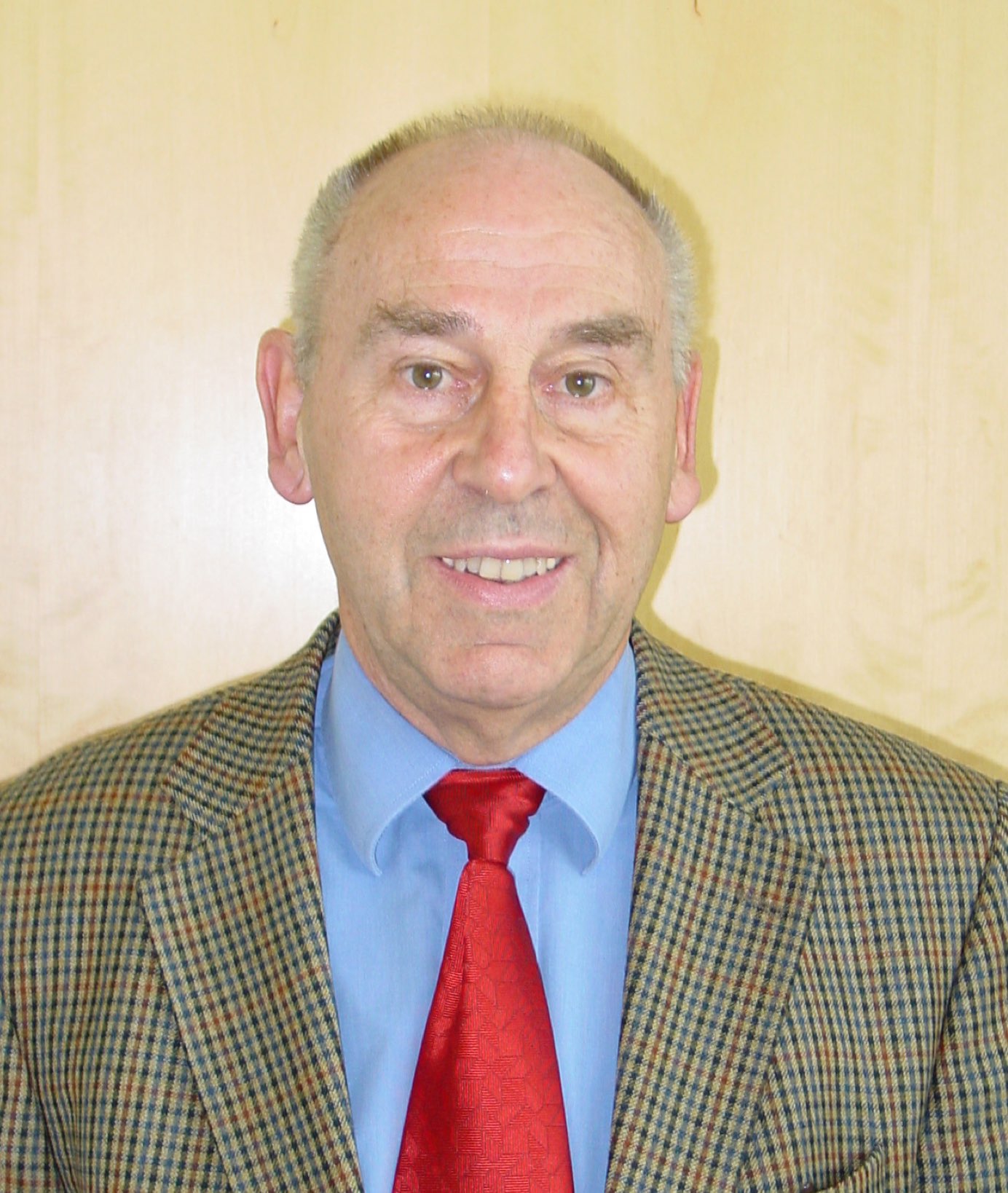
Karl-Heinz Schleifer (Image: TUM)
Teaching profession Biology, Chemistry, Geography 1964, Promotion Biology 1967
From 1959 to 1964, Karl-Heinz Schleifer studied to become a teacher in Biology, Chemistry and Geography at TUM. He obtained his doctorate at TUM in 1967 in the field of Biology. From 1966 to 1969 he worked as a research assistant at the Institute of Applied Botany at the TUM.
Following this, a grant from the Deutsche Forschungsgemeinschaft enabled him to spend a year at Rockefeller University in New York. There he conducted research as a postdoc in the field of Immunochemistry. On his return, he completed his post-doctorate in 1971 in Botany and Microbiology at the Ludwig-Maximilians-University of Munich, where he became professor and acting director of the Department of Microbiology. In parallel, he was appointed to the TUM in 1974 as a full Professor of Microbiology and remained there until his retirement in spring 2007.
Karl-Heinz Schleifer has held many national and international prestigious positions and offices. For example, he was General Secretary of the Federation of European Microbiological Societies (FEMS) from 1986 to 1994 and in parallel between 1989 and 1992 President of the German Society for Hygiene and Microbiology. From 2005 to 2008, he was president of the International Union of Microbiological Societies (IUMS), the umbrella organization of over 100,000 microbiologists worldwide. In addition, Karl-Heinz Schleifer is one of the most cited scientists in microbiology. In 2001, he was named Highly Cited Researcher by the Institute for Scientific Information (ISI).
He has received many awards for his research achievements in Microbiology, Molecular Biology, Microbial Ecology, Chemistry and Immunochemistry, especially in the identification and classification of bacteria. For example, in 1995 he received the generously endowed Körber Prize for European Science, in 2006 the Order of Merit of the Federal Republic of Germany, 1st class and in 2009 the FEMS Lwoff Prize.
Professor Dr. Karl-Heinz Schleifer was appointed TUM Emeritus of Excellence by TUM president Prof. Dr. Wolfgang A. Herrmann in 2007.
